By Sakina Laksimi Morrow
The socially conscious pedagogy series concluded the fall semester with a collaging session where educators were prompted to use collage to explore, reflect and share how their positionality shaped their teaching. Participants discussed teaching failures and the lessons learned from them, what it looks like to develop a syllabus or assignment about unlearning, the need for pedagogical training for college level educators, and the experience of art-making as a way of relieving stress and getting creative. Images from our session are included throughout the post.
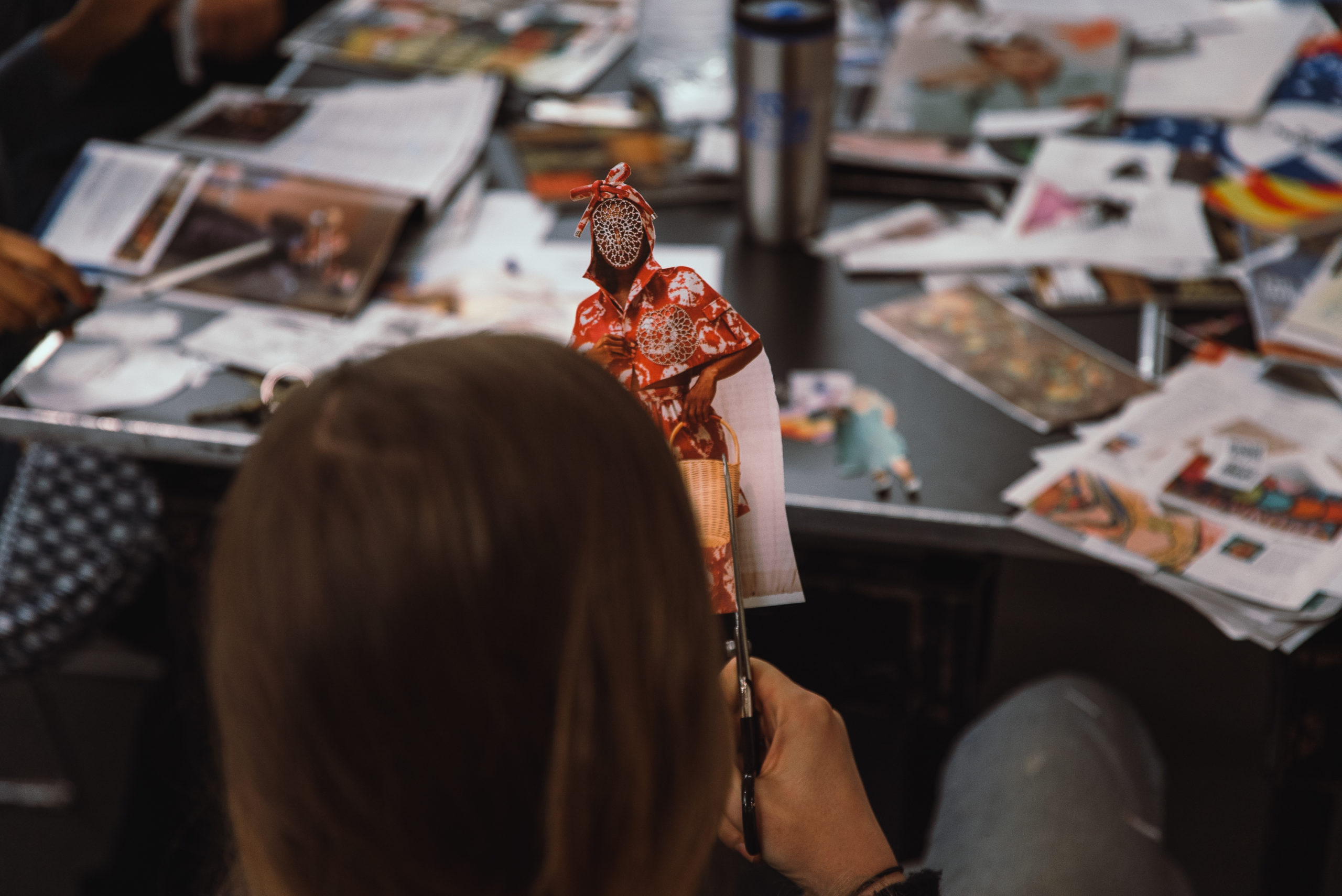
When I am using paint, chalk or cutting pages out of a magazine for a collage, I am reminded of childhood. I am reminded of the most comforting room in the school, the art classroom. And I am back for a moment at a kitchen table or sitting on a step or a stoop.
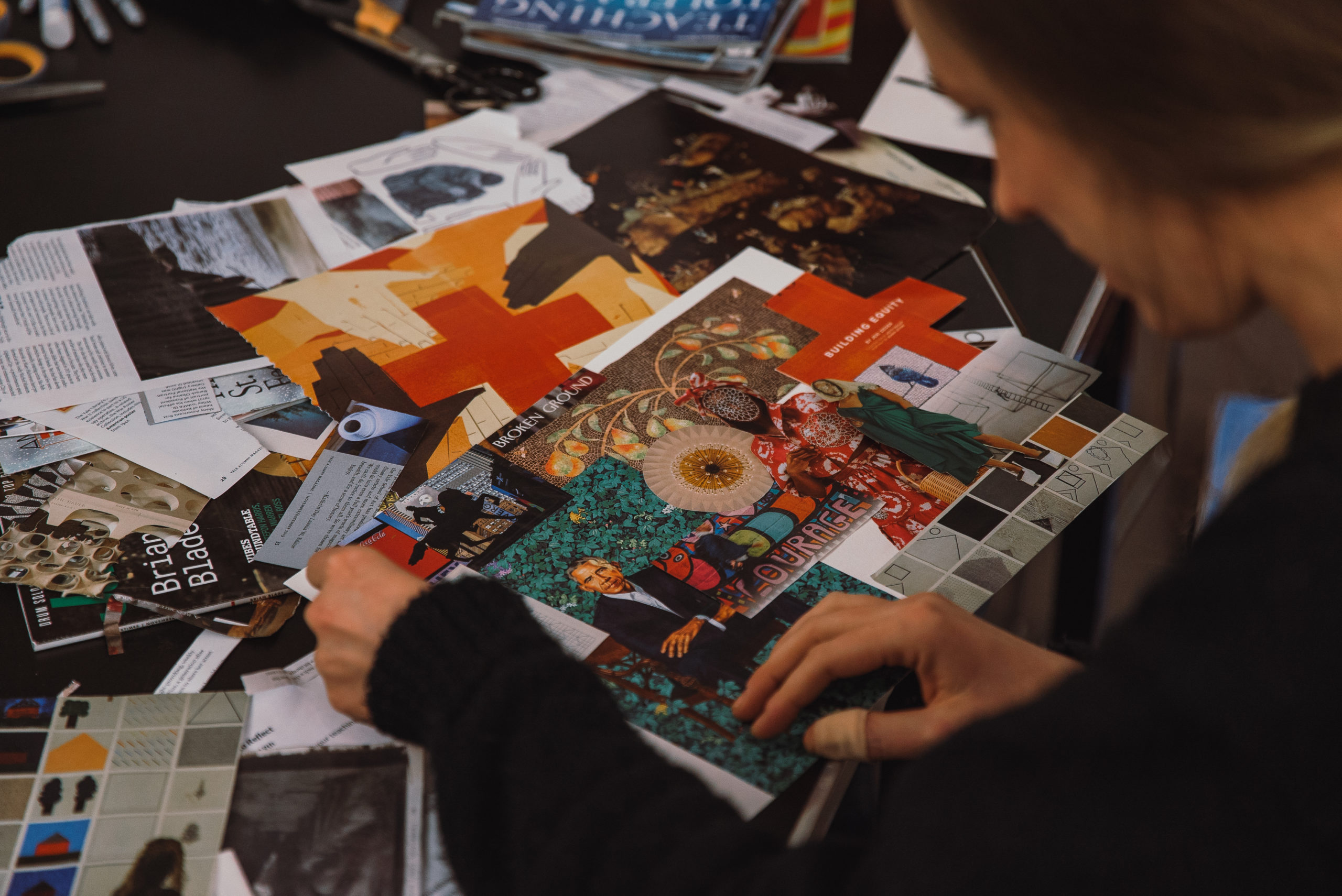
Art-making is the expression of our imagination. Art is a practice in self-preservation and discovery.
Collaging asks for an interplay between intuition and thought – reconstructing new meanings, finding other meanings from the raw material – discovering how the parts of ourselves fit, and the ways they stand in acute juxtaposition to the world.
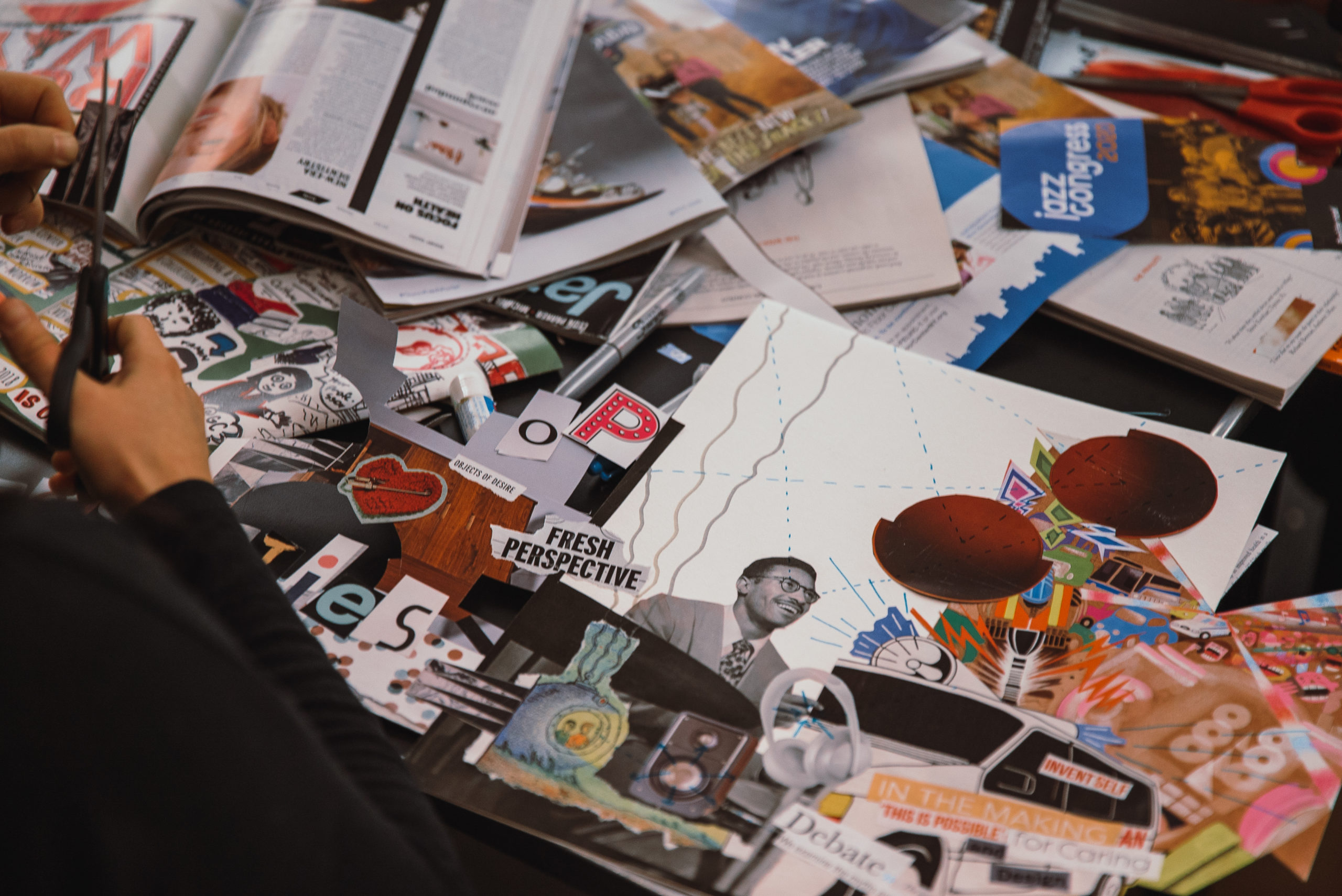
Instructors are (co)producers of knowledge: we are interpreters, facilitators, designers, learners and bodies. The bodies of knowledge we hold, the voices and perspectives we center – the systems we work in and against – are all inscribed into our teaching. So for those who seek to raise social consciousness in their classrooms, self awareness is a (messy/evolving/unstable/frightening/loving) precondition. A process of being consciousness of-and-with the world around us.
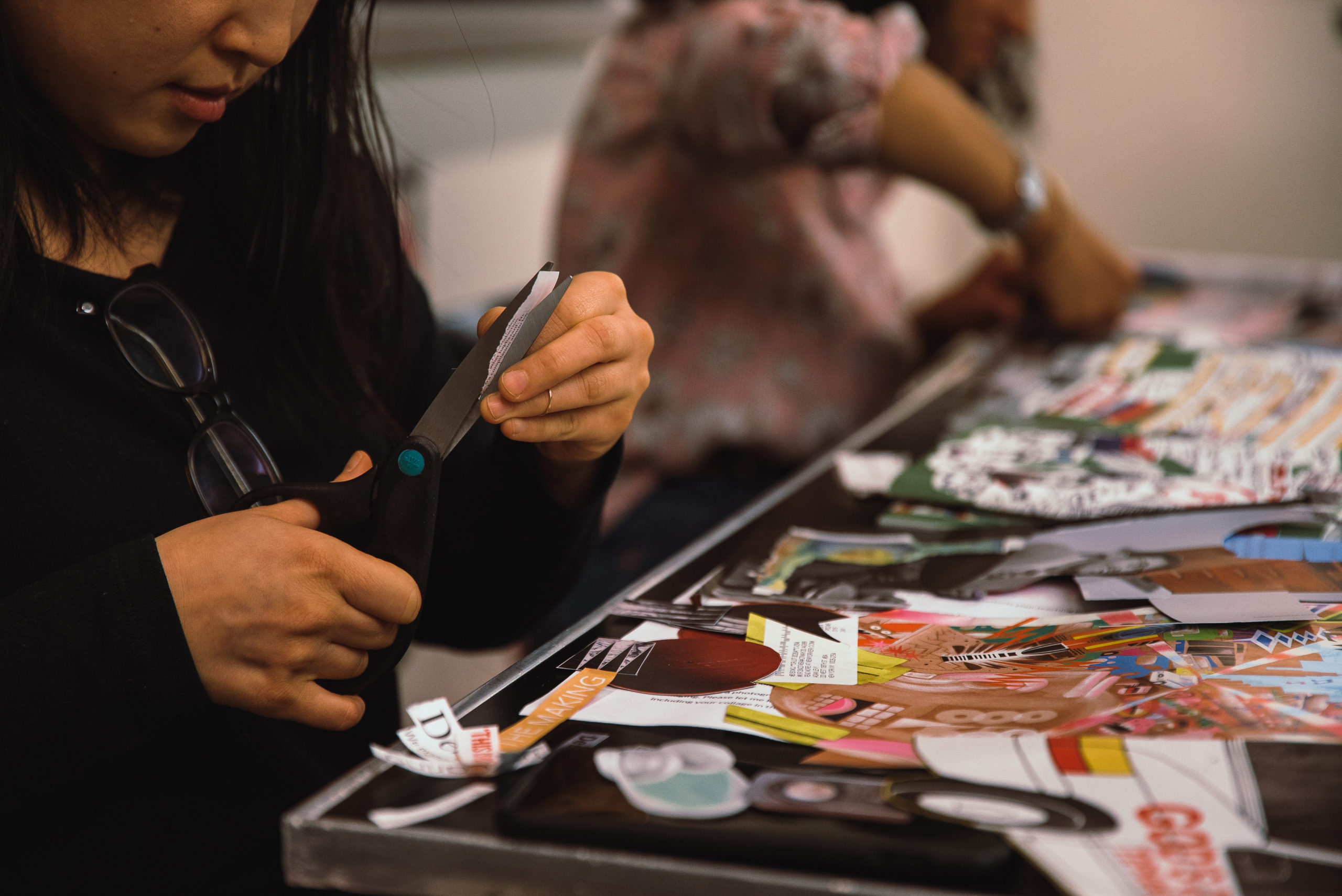
Self reflection need not be self-critical, like emergency intervention, but rooted in care, informed by discomfort, driven by desire, working against deficit thinking, evolving in community and in isolation.
The pedagogy of unlearning is when you realize something that you thought was true is not true: what you thought was normal was not normal, things are coming undone and you leave with more questions than you came. We are destabilized.
The canon, too, is destabilized. We can collage new meanings. We can be fluid and flexible. We are archivists of knowledge. Storytellers.
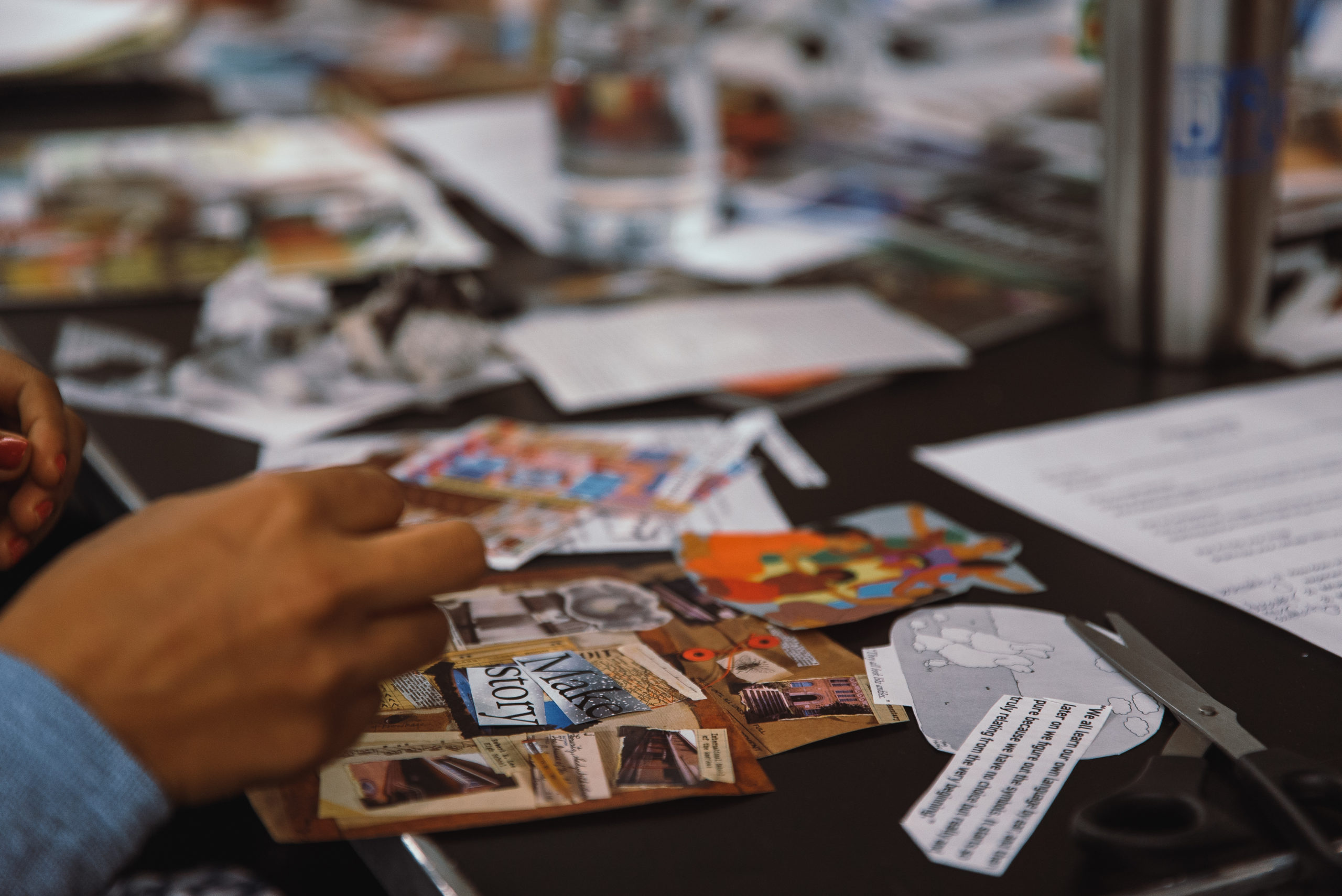
We are also driven in part by desire.
In a moment your perspective shifts just a bit, and your mind opens just a bit – euphoric. Writing that is delicious: a thought that resonates and reverberates through your mind and body. An image with many meanings.
We struggle too. Many of us cope with anxiety, with depression, with shame, with anger, and with pain. Our bodies fail us at times, and at other times internal forces are working against us, refusing generosity.
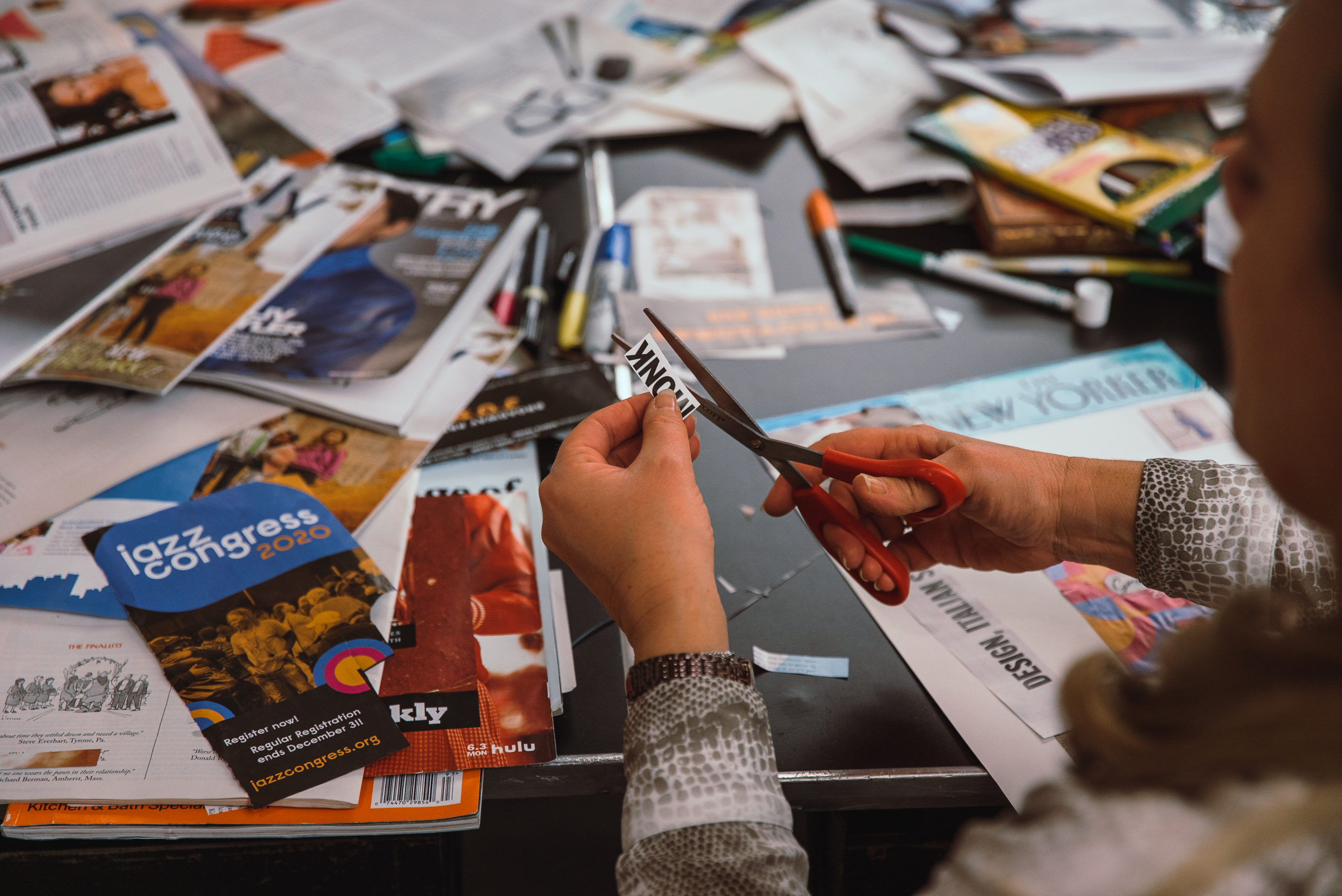
In the spring semester we will be expanding on this series through several programs: a panel on Interrupting Deficit Thinking about Disability, Queering Safe Space Workshop and an Art-Based Meetup on Unlearning.
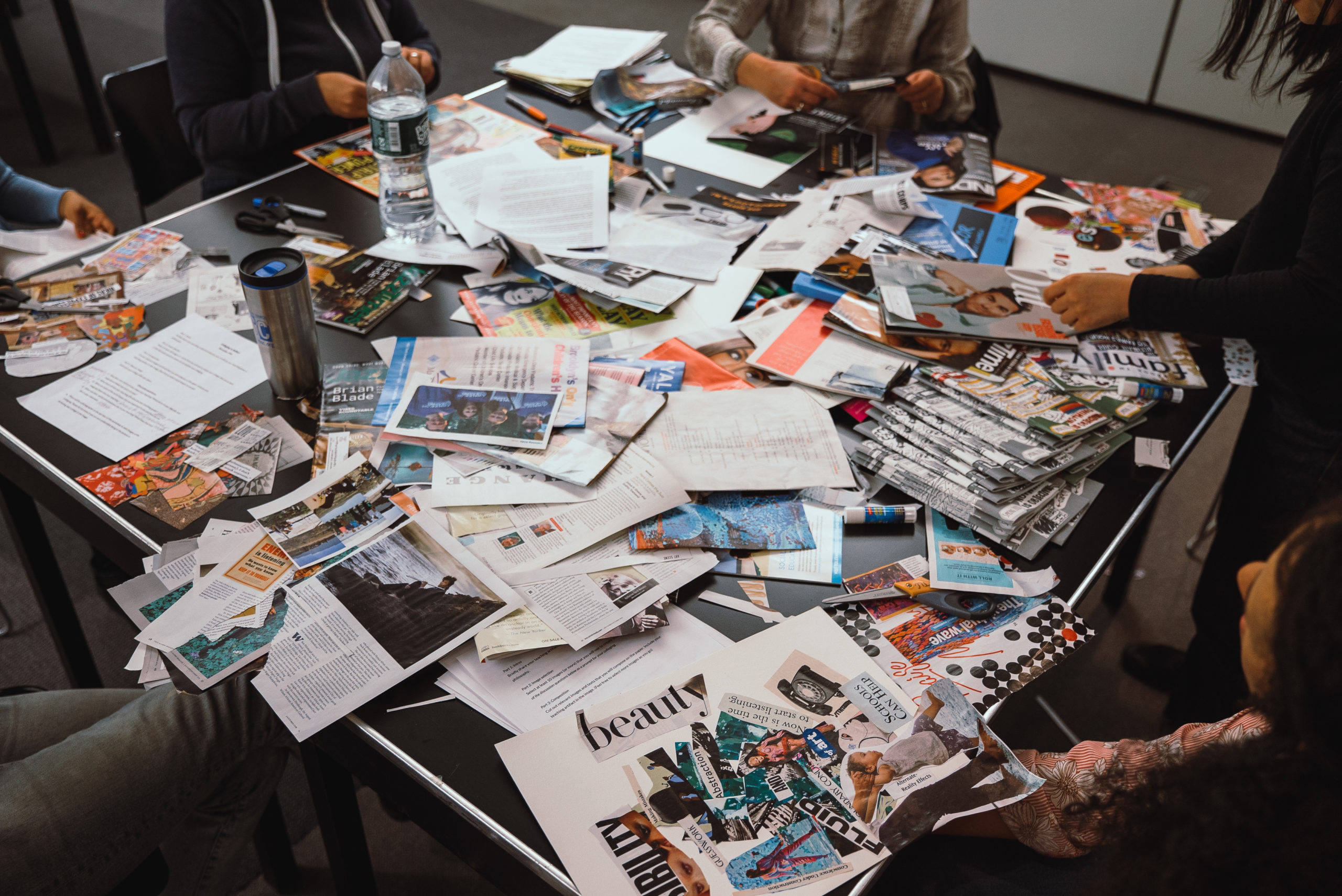
Sakina Laksimi Morrow is a Doctoral student in the Urban Education department and the Interactive Technology and Pedagogy certificate program.

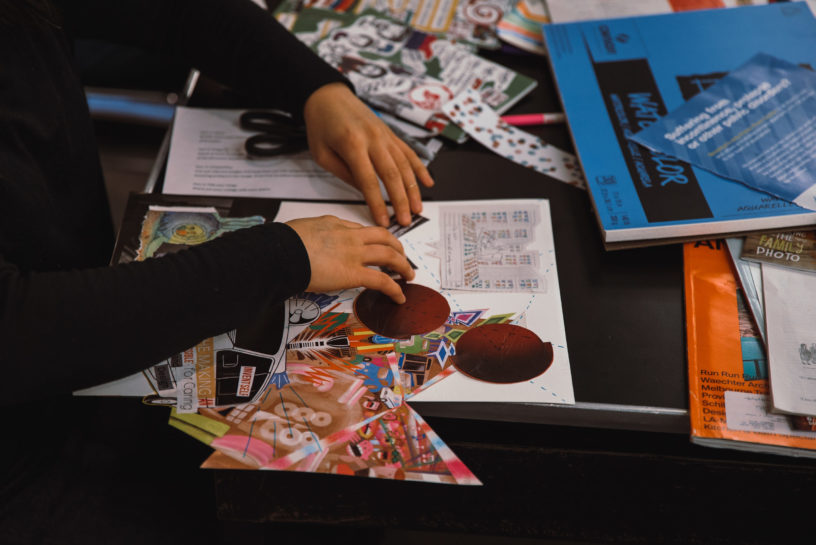
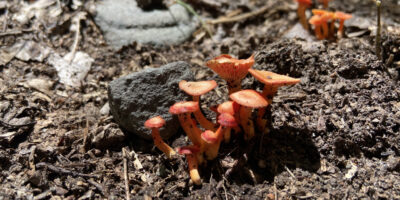

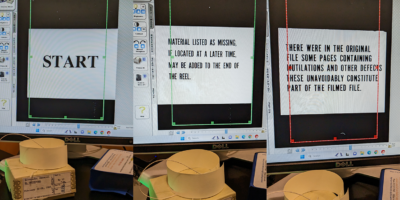





Leave a Reply